Blog - Meet the public contributors shaping clinical research
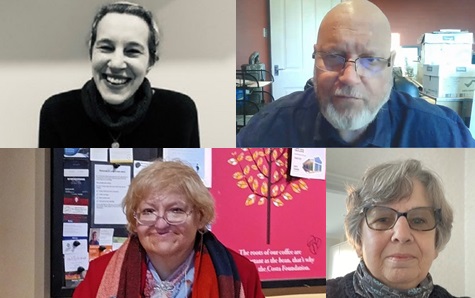
The start of June sees both Patient Participation Week (31st May-6th June) and Volunteer Week (1st-7th June).
To mark this, we spoke to some of the patient and public contributors who volunteer with the Southampton Clinical Trials Unit about working with our researchers and trial teams to make sure the interests of patients are at the heart of everything we do.
Former trial patient Charlotte Moss became involved with the trials unit after she was part of the £25m fundraising campaign to build the Centre for Cancer Immunology, where the SCTU is now based.
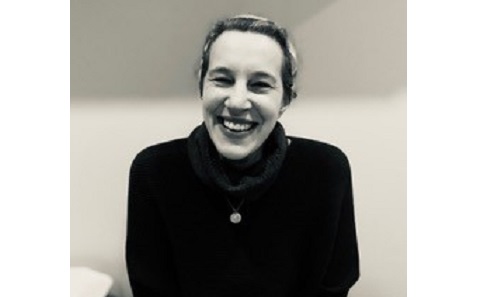
“I really enjoyed being part of the team and part of the story behind this centre. So, when it was finished, I asked if there was something else I could do to help out and it was suggest I could join the patient involvement group at the clinical trials unit.”
Charlotte, who herself took part in a successful trial of a new immunotherapy treatment after she was diagnosed with melanoma, is now part of the Southern Cancer Trials Public Involvement Group, which provides feedback and input to researchers on new cancer trials.
“It’s a really interesting way to see what’s coming up at the trials unit and what’s coming up at the forefront of research. But much more than that, I think it’s really important that there is patient representation on these trials and that doctors and researchers can see the other side of the story – how it affects patients, how patients are going to be feeling as they go through this treatment, and how they are going to be communicated to.
“I think it’s really important that you have people who represent patients actually there right at the beginning of the trials, being involved, asking questions and challenging people about whether this the right thing to do, is this going to be right for the patient. And that’s what I get out of it, feeling that I’m helping all those people who are potentially going to be part of that trial.
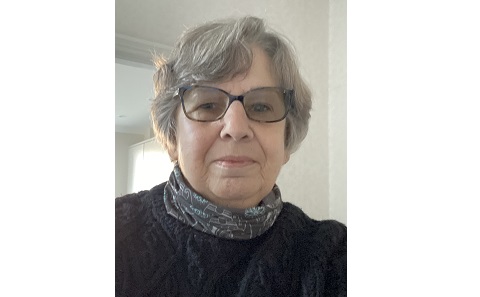
Jackie Rafferty was invited to be one of the Public Participation and Involvement members of the Macmillan Horizons Project after she was diagnosed with both Lung cancer and Marginal Zone Lymphoma in 2015/16.
Horizons was a five-year qualitative research study exploring the consequences of different cancer diagnoses and treatments from the individual perspective of patients.
“It helped me realise the importance of involving the person experiencing a potentially life-changing condition in their own treatment but also in the development of new treatments and the ways they impact both patients and their friends and family. I felt my insight might be useful to researchers in lymphomas and in lung cancer
“It was good to discover that there was a growing interest in patient involvement in medical research both locally and nationally. And as is the way once one bus comes along so do a couple of others and when I saw opportunities locally to be involved, I put my hand up.”
Jackie then joined the Trial Management Group for the SCTU’s REMoDL-A lymphoma trial, which is looking at adding an additional drug to the standard treatment, and more recently became involved in the Southern Cancer Trials Public Involvement Group and the TOURIST Platform Trial Steering Committee which is supports lung cancer trials.
“It is not always easy to see what I can contribute but slowly as I become more familiar with the scope of the role and the language of medical research, I can see I am making a difference. Even if it is to ensure patient information sheets are written in accessible language and to question the status quo that sometimes shows up in the ‘this is the way we do it’ processes. I am concerned that there is a broad diversity of people involved in patient involvement in research as are the researchers I have come across and I have been impressed with the work going on to ensure outreach to those not so often included both as public involvement and as participants in trials.”
“I was helped into the roles I am playing by others who have travelled the routes before me and meeting up with other PPI before meetings, asking for pre-meeting briefings from researchers and ‘googling’ research terms as well as getting a list of acronyms have all been very helpful.”
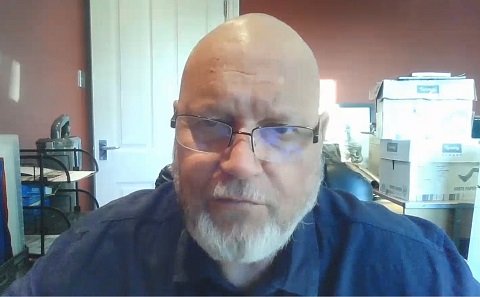
Richard Stephens is lymphoma patient who himself was part of a clinical trial after being diagnosed in 1998. He’s now been involved in research as a public contributor for over 23 years, including several SCTU trials.
“I think patient and public involvement can bring many things to improve the quality of research. I think you are more likely to get a question that is relevant to patients, you are more likely to get an outcome that is relevant to patients. I think too that if patients look at the protocol or help design the study, which is even better, then you are less likely to have too many visits to hospitals that we really don't want to do, or too many scans that scientists and researchers might like because they just can't get enough data. But at some point, we might feel that they probably have had enough data, especially if it means sticking more needles in us or subjecting us to more scans. So, I think we can have all sorts of involvement that's useful.
“I still get a kick, even after 23 years, out of actually seeing a piece of research finished, published, and influencing what goes on in the clinic between doctors and patients. I still enjoy moving things along. I love meeting other patients, that's an absolutely fabulous part of the role, and I like feeling useful.”
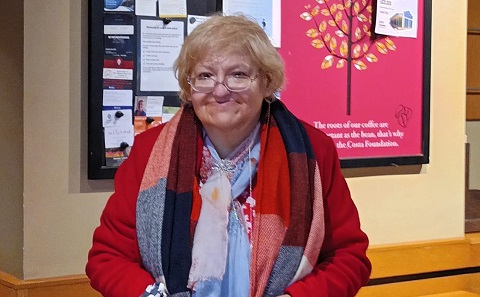
Debs Smith first got involved as a patient representative with a mental health research group at Warwick University over a decade ago after suffering from long-term mental health conditions. She has since been involved in many projects, including co-designing a course for early career researchers through the British Society for Immunology
As a cervical cancer survivor, she recently became involved in the CRAIN cervical cancer trial currently being conducted at SCTU.
“It’s about having the opportunity to use your own health issues, that at times have been very negative, and to bring something positive out of it. You have to remember that your expertise is your lived experience. You’re not there to become an academic or a clinician, but the value of you being there is so that you and the academics and clinicians can work together to make the research the best it can be, so that healthcare is the best it can be for patient’s and their loved ones.
“Sometimes you’re not going to understand every single detail in a meeting, but don’t be afraid to ask questions. It means the researchers have to explain it to you in a way that you understand, and that can help them to be able to put it in way that patients and the public can understand in the future.”
If you'd like to find out more about Patient and Public Involvement (PPI) at the Southampton Clinical Trials Unit, visit our PPI webpage.
If you'd like to be added to our public contributor mailing list to get notifications of new opportunities to get involved in our trials, email our PPI coordinator Liz Allaway, L.Allaway@soton.ac.uk.